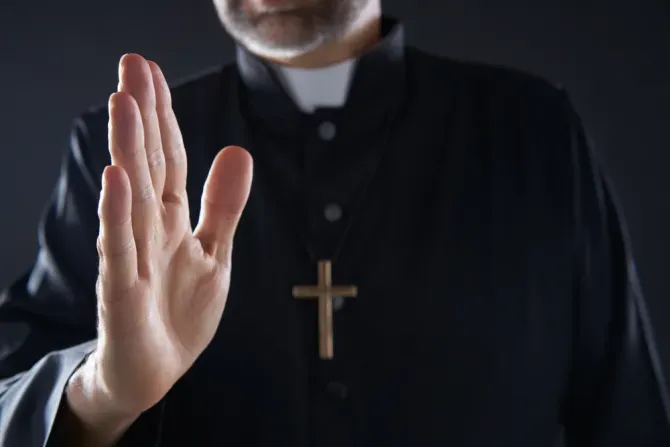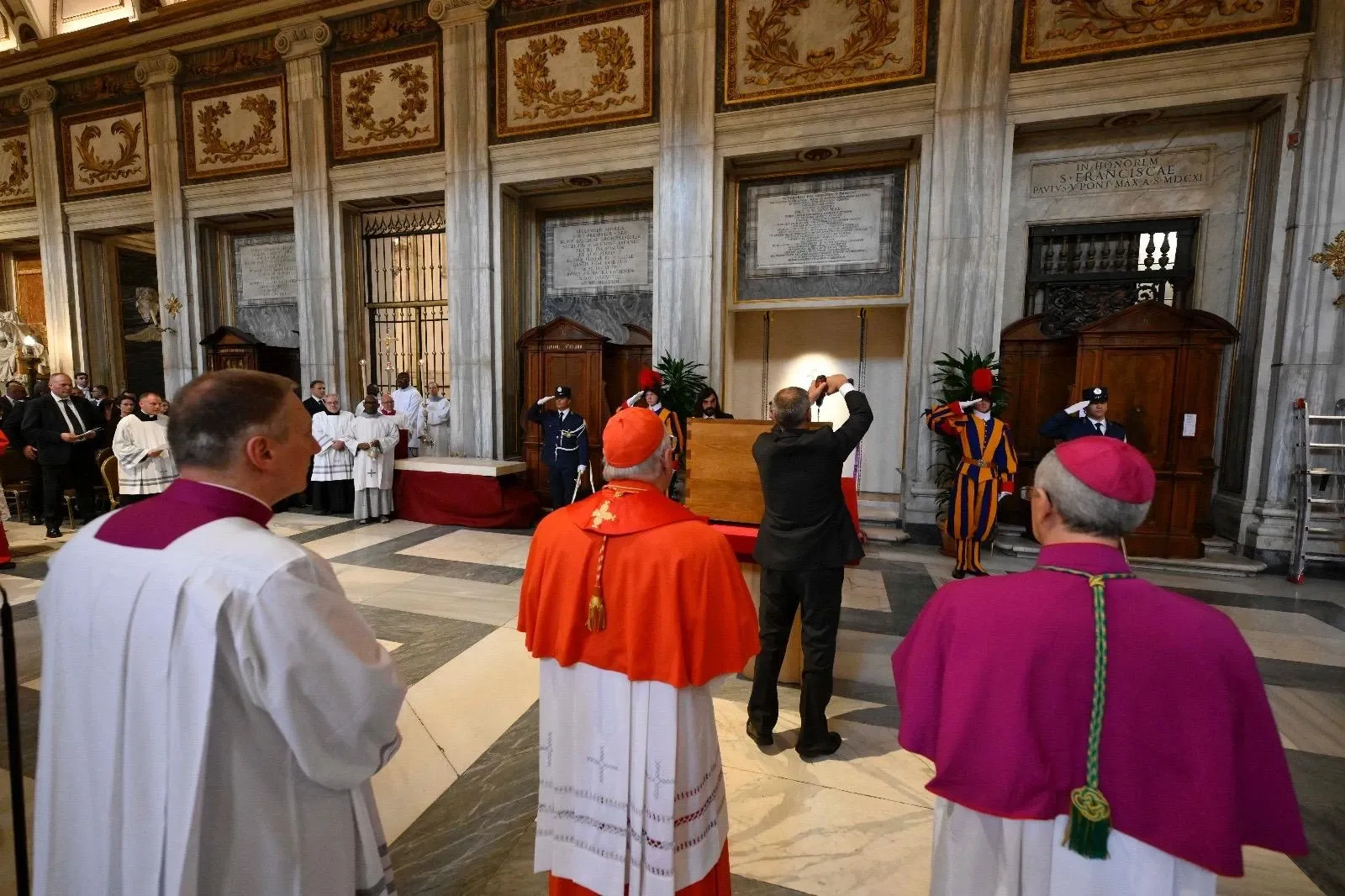Bishops taking a more cautious approach
Numerous bishops around the world have accepted the declaration from the Vatican but have cautioned against misrepresenting the guidelines in a way that would suggest that the Church condones homosexual behavior.
The United States Conference of Catholic Bishops issued a statement that highlighted the “distinction between liturgical (sacramental) blessings and pastoral blessings” and said: “The Church’s teaching on marriage has not changed, and this declaration affirms that, while also making an effort to accompany people through the imparting of pastoral blessings because each of us needs God’s healing love and mercy in our lives.”
Diocesan approaches have varied. Some bishops, like Bishop Andrew Cozzens of the Diocese of Crookston, Minnesota, are emphasizing the Church’s continued prohibition on homosexual activities: “It is impossible for us to bless a same-sex union … [but] we may bless individuals who are not yet living in full accord with the Gospel,” the bishop said.
Other bishops, such as Cardinal Blase Cupich of Chicago, suggested the Vatican document was a positive step for the Church. “We welcome this declaration, which will help many more in our community feel the closeness and compassion of God,” the cardinal said.
(Story continues below)
Filipino Archbishop Socrates Villegas of the Archdiocese of Lingayen-Dagupan took a similar approach that emphasizes the Church’s teaching on homosexual behavior, saying that proper blessings for couples in irregular situations would be “asking God to have pity on both of them and to give them the grace of conversion so that they can regularize their relationships.”
“Priests who are invited to bless couples in irregular situations should choose the appropriate words to reveal this intent of the Church,” the archbishop said.
The statement from the Conference of Roman Catholic Bishops of Ukraine similarly said that the document provides “no ‘permission’ or ‘blessing’ for homosexual cohabitation or any life in sin.” The bishops were also critical of how the document was worded.
“What we missed in the document is that the Gospel calls sinners to conversion, and without a call to abandon the sinful life of homosexual couples, the blessing can look like approval,” the statement read.
Bishops in some African countries, such as Ghana and Kenya, also emphasized that the Church does not approve of homosexual activities when commenting on the declaration.
“If a gay couple goes to the priest to bless them, and the pope says yes, you are blessing the people and not the union,” Bishop Matthew Kwasi Gyamfi, the president of the Ghana Catholic Bishops Conference, said in an interview with Eyewitness News.
The Kenya Conference of Catholic Bishops issued a statement that noted that the Church works to “recover the lost and redirect all sinners back to the fount of salvation and of eternal life” but does not endorse sinful behavior, such as homosexual activity.
“In blessing persons, we do not bless the immoral actions they may perform but hope that the blessing and prayers offered over them as human persons will provoke them to conversion and to return to the ways of the Lord,” the statement read.
Bishops in three countries refuse to implement declaration
In at least three countries — Kazakhstan, Malawi, and Zambia — Church leaders are refusing to implement the Vatican declaration in any way.
Archbishop Tomash Peta and Auxiliary Bishop Athanasius Schneider of the Archdiocese of St. Mary in Astana, Kazakhstan, admonished Pope Francis and argued that the blessing of homosexual couples is a “great deception” and “evil” and has “far-reaching and destructive consequences.”
“To bless couples in an irregular situation and same-sex couples is a serious abuse of the most holy name of God since this name is invoked upon an objectively sinful union of adultery or of homosexual activity,” the joint statement read, adding that the Church becomes “a propagandist of the globalist and ungodly ‘gender ideology’” if it permits such blessings.
The bishops forbade priests from performing such blessings, called on Pope Francis to revoke the declaration, and claimed that Pope Francis “does not walk uprightly according to the truth of the Gospel,” quoting St. Paul’s epistle to the Galatians.
The Episcopal Conference of Malawi issued a statement saying it would not allow its priests to bless homosexual unions but did not directly criticize the pontiff. Rather, their statement said “certain erroneous interpretations … have generated interest, fears, and worries among Catholics.”
“We direct that for pastoral reasons, blessings of any kind and for same-sex unions of any kind are not permitted in Malawi,” the statement read.
Bishops in Malawi’s neighbor to the West, Zambia, issued a similar statement, refusing to allow their priests to bless homosexual couples.
The Zambia Conference of Catholic Bishops statement noted that the Vatican declaration “is not and should not be understood as an endorsement of same-sex unions,” noting that the Scripture “presents homosexual acts as acts of grave depravity.”
To avoid confusion, and to ensure the clergy does not violate any Zambian laws, the statement said the Vatican document will be “taken as for further reflection and not for implementation in Zambia.”








